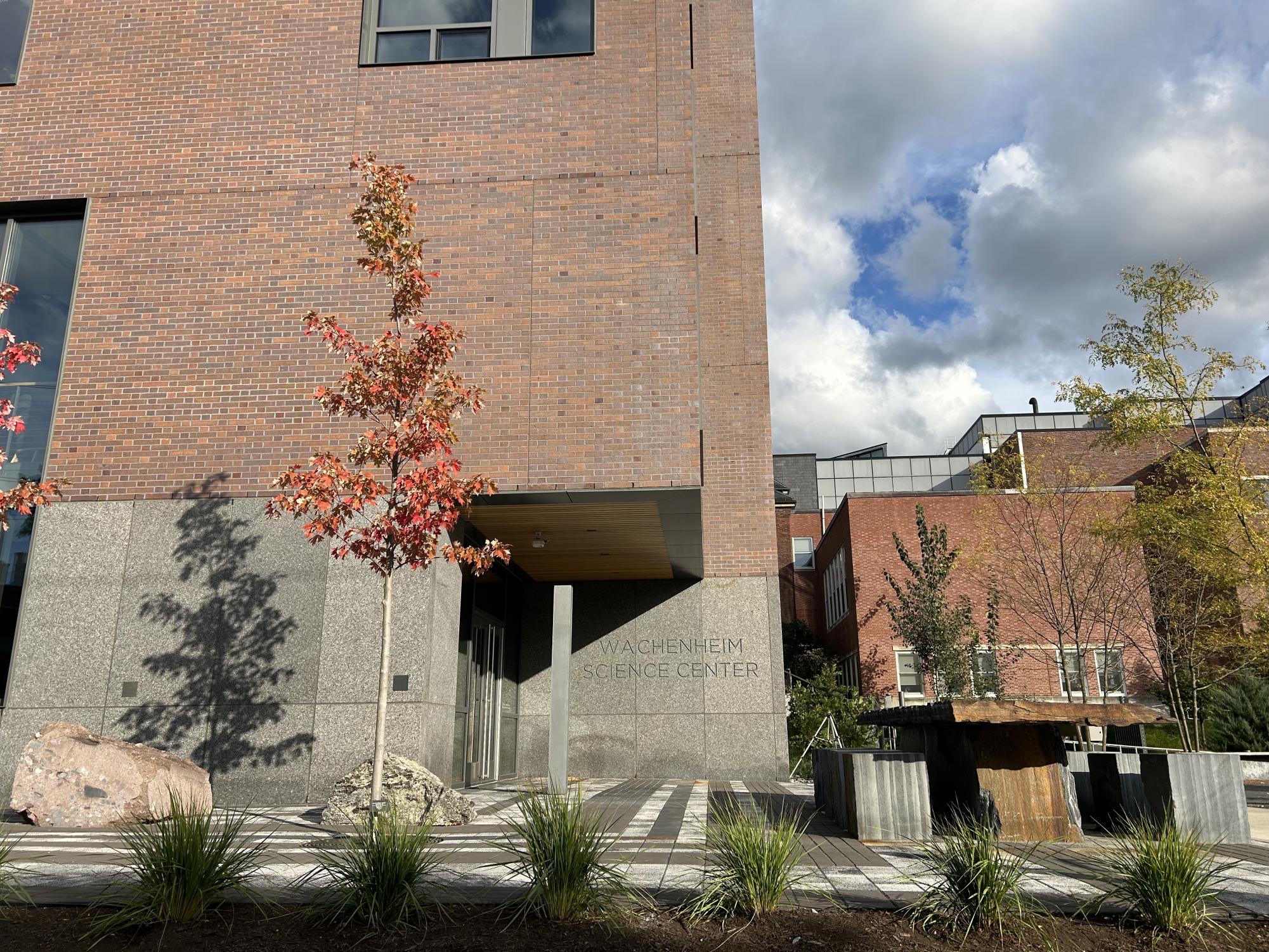
Students for Justice in Palestine (SJP) and Jews for Justice (J4J) presented revised demands for divestment from weapons manufacturing to the Board of Trustees on Sept. 26. The meeting, facilitated by President Maud S. Mandel, followed her May 8 email inviting the groups to participate in the board’s May and September discussions on the condition that they dismantled their 13-day encampment and did not disturb Commencement.
In January, the Advisory Committee on Shareholder Responsibility (ACSR) convened in response to a request by J4J that the College institute divestment criteria that “works to screen out companies that support the ongoing violence in Israel/Palestine” and apply environmental, social, governance (ESG) standards to its investment strategy. In May, the ACSR recommended against these requests, and the Board of Trustees decided to follow the recommendation, Mandel wrote in an all-campus email on June 11.
With this decision in mind, SJP and J4J presented updated requests for “targeted divestment from weapons manufacturing and sale,” according to a 26-page report produced by the groups ahead of the meeting, which they provided to the Record.
“We felt like making the demands more general allows the board to make a decision that’s less politically fraught,” said Lauren Ryan ’25, one of SJP’s student negotiators. “However, we still view the IDF [Israeli Defense Forces] as a specific case for why the school should divest.”
The new demands include public commitment from the College to divest from companies that receive 30 percent or more of their revenue from weapons manufacturing and sale and to create or strengthen ESG standards in its investment portfolio. The group also requested that the College follow through on commitments it made to financial transparency in the spring.
While members of SJP and J4J were presenting their demands to the board, the groups also hosted a “rally and mini encampment” outside of Wachenheim, where the meeting was occurring. Approximately 50 people attended the protest, Martha Carlson ’25, one of its organizers, wrote to the Record.
“SJP and J4J mobilized to show our continued support for the people of Palestine and their right to self-determination after 75 years of genocide, which has escalated during this past year,” Carlson wrote to the Record. “We wanted to make it clear to the Board of Trustees that the constituents of this college still overwhelmingly condemn financial support of the manufacture of arms used to perpetrate this genocide. Divestment is the only ethical option.”
“The Board sees the meeting as an element of their ongoing interest in hearing from diverse students, faculty and staff,” Jim Reische, special advisor to the president for executive communications and media relations, wrote to the Record. Reische declined to provide further details about the meeting.
According to the report, SJP and J4J’s updated requests are based on three core principles: that “complicity in human rights violations is a pressing concern,” “investments in weapons manufacturing and sale contribute to human rights violations,” and “as an influential higher education institution, Williams College must be an ethical and responsible global citizen.”
Beyond the requests, the report included an annotated copy of the ACSR’s spring recommendation, examples of divestment at peer institutions, and letters of support from members of the College community. The version of the report provided to the Record does not include the letters of support due to confidentiality concerns. The report also states that the groups “reject the narrative that divestment is a closed issue.”
In an interview with the Record, Alice Wanamaker ’25, a student presenter for SJP, said she believed the Board of Trustees should be open to hearing students’ demands, especially given the groups’ willingness to alter them from the spring. “Our demands shifted a fair bit from last time, specifically to respond to [the board’s] concerns, and I hope that the board appreciates the extent to which that’s true,” she said. She added that, following the meeting, she believed most members of the board appeared willing to engage with the new demands.
“We made more of an emphasis with our tone that ‘We want to work with you,’” Ryan added.
The report advocates for the College to inform its fund managers about its desire to divest from holdings tied to weapons manufacturers and sale. However, the demands do not require the College to exit funds that are designated by fund managers as substantially important to the endowment.
“If we are saying you need to take action on divestment, and they’re saying we have a fiduciary responsibility to not harm the endowment, we think the middle ground is thinking creatively about what actions can be taken without harming the endowment,” Wanamaker said.
The report also adds that the groups do not think their demands for divestment would have a negative impact on the endowment, citing better performance from the S&P 500 in comparison to the S&P Aerospace and Defense Select Industry Index, which they assert mirrors the trends of weapons manufacturers.
Beyond the College’s specific holdings, Wanamaker said, the groups believe the College’s potential influence on its peer institutions through divestment is “the biggest impact that Williams itself can have.”
“It then can have a financial impact once it is lumped in with other groups that divest because of Williams’ action,” she said.
According to Ryan, SJP and J4J have no plans to request that the ACSR convene on the issue of divestment again, citing frustration that the committee was not instituted as a standing committee — as was requested in the groups’ original communication with the ACSR — and concern that the request process would slow down negotiations with the Board of Trustees.
“The May 2024 ACSR report, whose suggestions the Williams College Board of Trustees accepted in full, was poorly researched, lacking in rigor, and completely void of concrete analysis,” reads the report that SJP and J4J presented to the Board of Trustees last week.
SJP and J4J plan to hold informational sessions to discuss the contents of the report in the near future, Ryan said.














